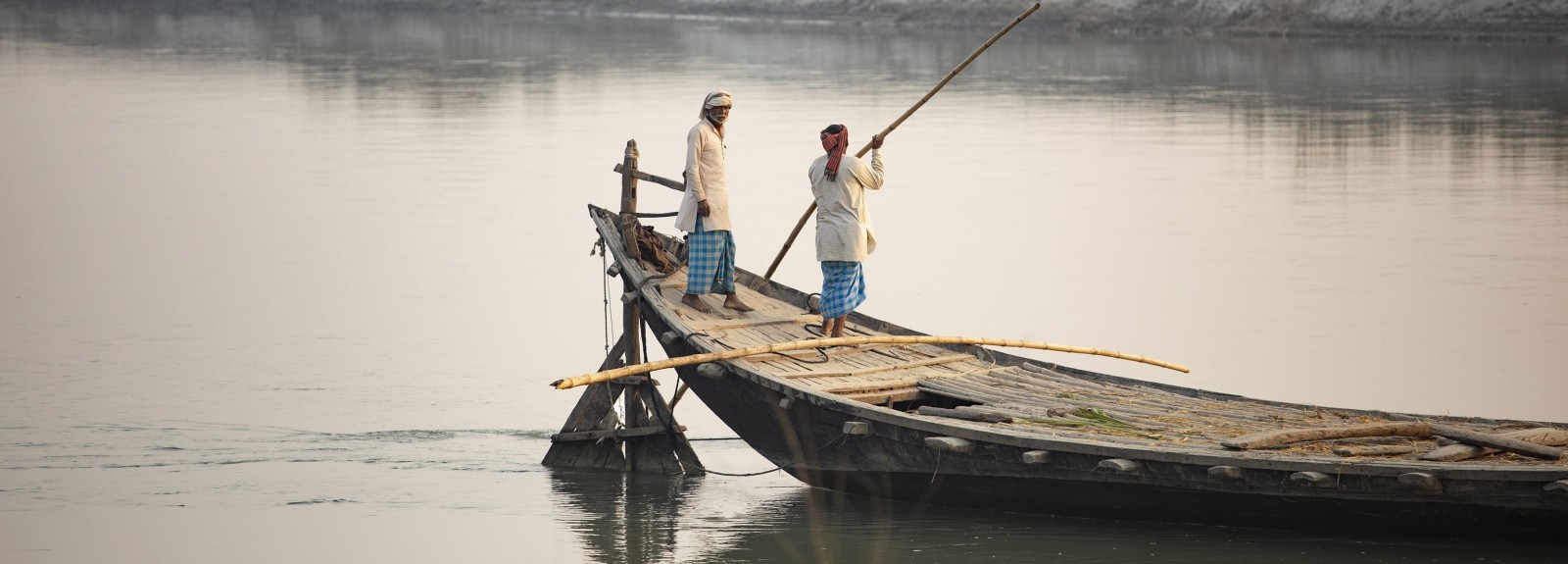On 50th anniversary of Earth Day, April 22, 2020, IMA signs onto InterAction's NGO Climate Compact.
April 22, 2020, marks the 50th anniversary of Earth Day, and this year, as the world faces the health and economic threats of COVID-19, we see more clearly than ever the interconnectedness of our world.
At IMA World Health, we think about interconnected systems every day. We look for opportunities to reduce the inequalities in those systems so that the world’s most vulnerable people have the opportunity to flourish. We do this by supporting national and local governments’ capacity to build and maintain health care systems that deliver evidence-based prevention and treatment for a variety of diseases and health needs.
Through our strategic partner Lutheran World Relief, we do this by understanding smallholder farmers’ needs and how other members of value chains can be part of systems that deliver fair prices and safe working conditions.
Today, we publicly reaffirm our commitment to another important system: the climate
IMA and Lutheran World Relief are now proud signatories of InterAction’s NGO Climate Compact. The Compact is a pledge to hold ourselves and those around us accountable for our actions to mitigate greenhouse gas (GHG) emissions and reduce the effects of climate change on the most vulnerable.
We have established an internal Environmental Stewardship Committee that focuses on strengthening our operations and programming in line with the Compact:
1) Education and advocacy
When our staff from Latin America, Africa, Asia and the Middle East are in the U.S. for necessary visits, we make every effort to connect them with influential legislators, donors, and other to share their stories from the field. We are committed to continuing to lift the voices of those most affected by climate change to speak truth to power. Whenever possible, our programs support the local and national climate adaptation priorities in countries where we work.
2) Cross-sectoral programming
We have long worked to support smallholder farmers to adapt to the local effects of climate change, such as by linking them with drought- or flood-tolerant seed varieties. We have incorporated resilience practices into our projects to prepare for disasters and reduce their negative effects on communities. Many of the practices we developed for climate preparedness also buffer communities from other disasters, such as economic, security, and health shocks.
3) Internal operations
We are beginning to develop systems that monitor our GHG emissions, water use and waste. We are expanding our understanding of risk mitigation to include environmental factors that both affect our operations and are created by our operations. We are developing ways to deepen our global staffs’ understanding of climate change and other environmental issues and to solicit their suggestions for ways we can improve.
4) Learning
As we collaborate with other implementing organizations, research institutions, and donors on climate issues, we are developing processes to better identify and share lessons about the most effective approaches to building climate resilience across our health and livelihoods work around the world.
We are committed to climate justice in our relationships, our programs and our operations. We will seek to continuously improve our efforts in all these areas.
Wendi Bevins is the Technical Advisor for Resilience at IMA World Health and Lutheran World Relief. She is chair of our Environmental Stewardship Committee and provides technical support to our global portfolio of proposals and projects on building resilience capacities. Her background is in international climate policy with a focus on equity. She has a Masters of Public Administration in Environmental Science and Policy from Columbia University. She served as a Peace Corps Volunteer in Albania (2008-2010).


